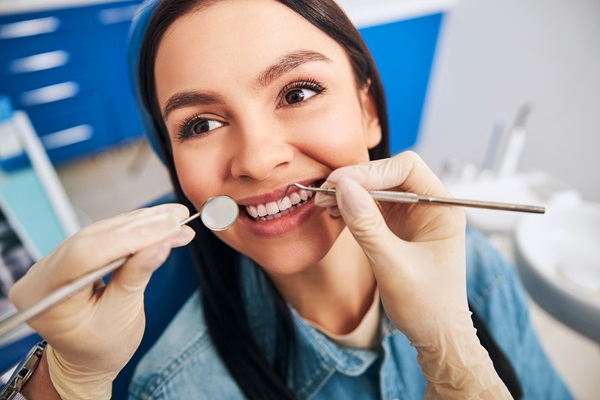How to Prevent Gum Disease

Learning how to prevent gum disease is beneficial for your oral health. It is one of the most common issues dentists deal with and it has been linked to some very serious health problems like diabetes, heart attacks and strokes. Gum disease eventually leads to the total loss of a tooth when it is not addressed in a timely manner.
Proper oral hygiene goes a long way when it comes to keeping teeth and gums healthy. Food particles are left over on teeth after meals and the bacteria that live in the mouth convert them into acids and plaque. Plaque is a sticky thin film that forms over teeth. It is what gives people the "morning mouth" feeling. When plaque gets under the gumline, it often leads to the first stages of tooth decay.
Gum disease has different stages. The first stage is called gingivitis and it can be reversed with good dental hygiene and proper dental care. The later stage of gum disease is called periodontal disease. The damage done at this point is often irreversible, but the tooth can still be saved. The third stage of gum disease is called advanced periodontal disease.
Symptoms that are often associated with gum disease include:
- Swollen or reddish gums
- Gums that bleed while brushing
- Sensitive gums
- Gum recession
- Pus coming from the gums
- Persistent bad breath
Patients who find themselves experiencing any of the symptoms listed above should immediately seek the services of a dentist.
How to prevent gum disease
There are a handful of things that can be done to prevent gum disease. Some of these include:
1. Brush twice daily
Brushing is one of the most important things a person can do when it comes to oral hygiene. It serves a very important purpose: removing food particles, plaque and bacteria from tooth surfaces. Plaque is the main cause of gum disease, and minimizing the amount of exposure teeth have to it promotes good oral health. Patients are advised to brush once in the morning and again right before going to bed.
2. Floss daily
Brushing is not enough to keep teeth clean. The bristles of a toothbrush cannot reach the spaces between teeth. Flossing cleans these areas and minimizes the buildup of plaque and bacteria.
3. Use an antibacterial mouthwash
A good mouthwash cleans spaces that even floss cannot reach. It also helps to remineralize teeth and kills some of the bacteria that create plaque. Mouthwash also helps to freshen breath.
4. Drink lots of water
Water helps to wash off teeth, so patients should drink lots of it throughout the day. It will help remove some of the acids, plaque and bacteria that build up during the day.
5. Regular dental cleanings
Dental cleanings go a long way in helping to prevent gum disease. During the procedure, tartar is removed from the teeth. Tartar facilitates tooth decay and it cannot be removed with brushing or flossing.
When was your last dental cleaning? Schedule an appointment with one of our dentists today.
What are you waiting for?
Request a dental appointment here: https://www.esdmke.com or call Eastside Dental at (414) 888-4000 for an appointment in our Milwaukee dental office.
Recent Posts
Choosing a general dentist to address gum disease is essential. General dentists undergo many years of training in order to learn how to provide their patients with optimal dental care services. One of the more important services they offer is dental check-ups, as this type of dental appointment is one that can help prevent a…
There is a good chance that you or someone you know has a type of gum disease. It is important to know there are multiple types of gum disease that can affect your oral health. If left untreated, some gum diseases can increase your risk of other health concerns. Learn about gingivitis and periodontitis, which…
Wondering how you should treat your inflamed gums? While inflamed gums are indeed fairly common, it does mean that there is something wrong with your gums. It really is essential that you take proper care of your teeth and gums by brushing and flossing on a regular basis. If you do not, one of the…
According to the CDC, gum disease affects almost half of the American population aged 30 and above. The funny thing is that many people who suffer from gum disease do not even know it. This is what makes the disease so ‘successful’.By learning about gum disease, we can keep our gums healthy and, hopefully, we…


